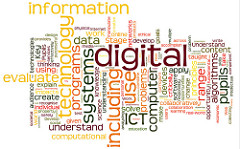The
world has never been more connected than it is today. Indeed, through
new technologies and the use of internet it is now possible to
communicate with everyone at a global level in just few seconds,
making appear our world very small. But this is not valid for
everyone.
As
recently stated by the International Telecommunications Union (ITU) -
the United Nations (UN) specialized agency for Information and
Communication Technologies (ICTs) – there are four billion people
in the developing countries that are still unconnected because they
have no internet access. Consequently, this data points out that more
than a half of the world population is totally excluded from this
interconnected world and that digital divide still remains a core
issue to solve.
With
the aim to discuss about this topic, on the 17th
of November 2015, a seminar was organized at the European Parliament
(EP) by the Member of the European Parliament (MEP) Marietje Schaake
on behalf of the Digital Agenda Intergroup, an informal network of
MEP's, cross-party and cross-nationality interested in digital
technologies and their role in bringing benefits to society. The
seminar, entitled “Tech for change: ICT's, internet access and the
post-2015 development agenda” and led by speakers from different
organizations, initially was focused on the importance of making more
efforts to improve the openness and accessibility of internet.
In
this regard, Samia Melhem, as a Lead Policy Officer in the World
Bank's Transport and ICT Global Practice, highlighted that ICTs can
have an important role in supporting public sector transformation,
innovation and in improving health and education services. Having the
goal of ending extreme poverty and boosting a shared prosperity
worldwide, the World Bank sees ICTs as a fundamental tool for
transformation. Particularly, she emphasized the efforts made by her
Institution to promote e-government, that consists in the use of
digital technologies in public administration to foster public
services and democratic processes. For this reason she underlined the
necessity to promote broadband in every household and reduce
disparities in digital access.
Eddy
Hartog, Head of the International Relations Unit and member of the
European Commission Directorate General for Communications Networks,
Content & Technology (DG Connect), focused his speech on the
necessity of eliminating internet fragmentation since ICTs represent
an important tool to generate new opportunities of development,
fight poverty and enhance prosperity.
In view of the increasing refugees emergency, the second session of the seminar was based on the importance of improving internet access in refugee camps. Doug Greene, Director and CIO for the Division of Information Systems and Telecommunications at UNHCR (United Nations High Commission for Refugees), stated that concerning the digital divide refugees are doubly disadvantaged since only 50% of them have mobile phones and just a few have internet access. He also pointed out another problem consisting in the fact that the ones who were born in camps do not even know how to use telephones or other digital devices.
On
the lack of a spread and an efficient connectivity worldwide, Kevin
Martin, Facebook's Vice President for Mobile and Global Access
Policy, affirmed that there are many barriers that prevent a fair
internet access in every country, among them: lack of
infrastructures, affordability and lack of awareness of the value of
internet. In this regard,
Facebook is developing many projects to try to solve and overcome
such barriers, and an example can be seen in its recent project
“Internet.org”, a partnership between Facebook and other six
companies (Samsung,
Ericsson,
MediaTek,
Opera
Software,
Nokia and Qualcomm)
that plans to bring affordable access to the two-thirds of world's
population who is not connected and to facilitate the development of
new business models around the provision of Internet access.
The
same effort is concretely pursued by Syed Karim, Founder of Outernet,
a global broadcast data service aimed to provide free content
distribution at a global level. Given the topic of the second
session, among his projects he mentioned in particular the “ROW3D -
Refugee Open Ware”, a humanitarian innovation consortium whose
purpose is “to develop open hardware innovation ecosystems, fueled
by co-creation between refugees, host communities and the best global resources in the
world”.
Hayo
van Bejma, Director at TTC Mobile, agreed with the importance of
fostering mobile access in refugees camps by explaining how some of the tools
that characterize mobile phones today, such as voice messages, can
help to include people with disadvantages or illiterates.
As a closing speech, Alexander DeCroo, the Deputy Prime Minister of Belgium, remembered that ICTs can be a strong tool to eradicate corruption and promote participation, stressing also the importance of investing in infrastructures and new skills. Concerning the eradication of poverty, he finally underlined the necessity of working together and cooperate without paternalistic solutions, in order to promote a global participation and a real social change.

No comments:
Post a Comment